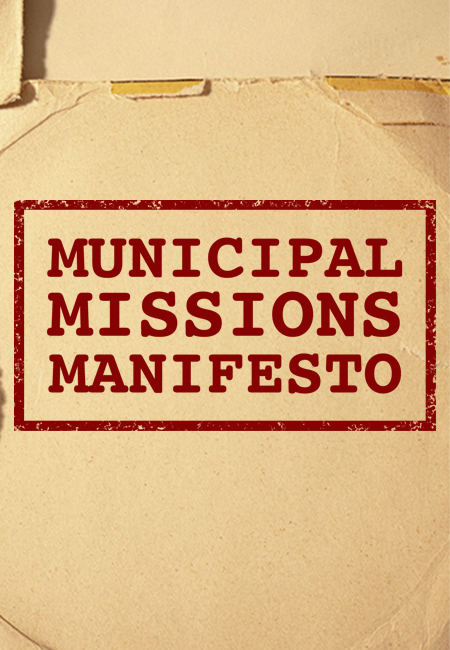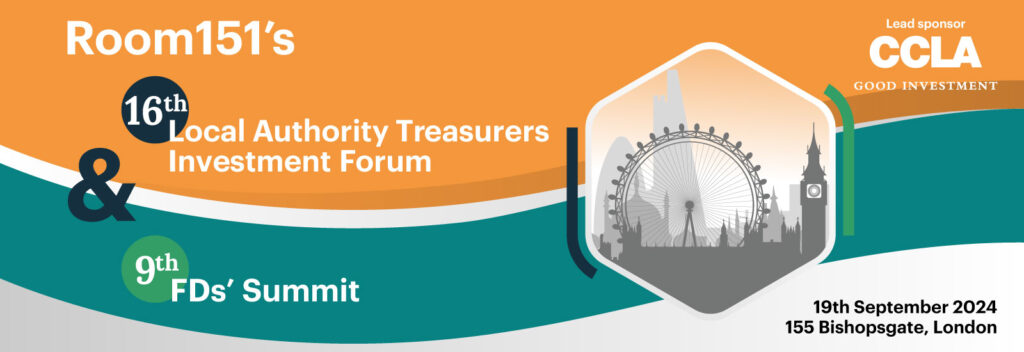This instalment of our Municipal Missions Manifesto series, which explores what a reset of local government should look like under the next administration, features Conrad Hall.
The new president of the Society of London Treasurers responds to a previous article in the series on devolution, offering a thought experiment on what the most radical approach to this could look like in reality – and asking what really would be so bad about it.
During the pandemic my younger brother sent me a link to an online chess playing website.
As he lives in Australia it proved a good way of keeping in touch: we’d play a move every day or two and exchange news as we did so. It also rekindled my interest in a game I’d given up before I was 16. Its brutally competitive nature had proved too much even for me back then, but with the benefit of, hopefully, a more mature outlook now I have greatly enjoyed taking it up again, playing in local leagues and competitions with, at best, mixed results.
What does this have to do with local government finance and the implications of the coming election?
Well, not a lot, but an article caught my eye the other week. Apparently someone in government had decided that chess was a ‘Good Thing’ and so arranged for a grant to be paid to local authorities, distributed on index of multiple deprivation scores, with the condition that it be used to install fixed tables with inlaid chess boards, for example in parks, to encourage more public participation in chess.
I haven’t actually seen that grant here at Newham, so the article may not have been true. However, it sounded plausible, because it would have been entirely typical of so many other funding rounds and because it so effectively summarised everything that is wrong with the current structure of local government finance and its relationship with central government.
Really, why on earth should it be a minister’s role to promote chess (or bridge, or backgammon, or Scrabble, or poker…the list goes on)? And even if it was their role, why should it be delivered in this specific way across the country, rather than simply letting those local authorities that wanted to sponsor competitions, provide lessons, or all the other ways one could try to encourage chess, do so?
A thought experiment
And that brings me to the question of devolution. I read with interest the piece on devolution on 14 May [Municipal Missions Manifesto: recommendations for a devolution plan that works], which was clearly far more carefully researched than this article. But, with respect to the authors, I fear that their approach is destined only to be of academic interest. Despite various warm words to the contrary, history shows us that whoever wins the coming election is perhaps unlikely to have any genuine interest in serious devolution to local government.

I hope I’m wrong, and had I bothered to research this article I’m sure I could have found examples in the various parties’ policy position papers. But really what’s the point, when those same parties (and the journalists they respond to) leap onto the dreaded ‘postcode lottery’ phrase the moment service levels show an inch of difference between councils?
So I thought instead I would try to set out the most radical approach to devolution I could think of, with an added requirement that it must be capable of being implemented quickly. There’s too much of a crisis in local government for us to afford the usual process, whereby a learned review is launched, a Chair with suitable gravitas found to lead it, followed by extensive consultation, drafting of a report and then…. Exhibit One: remember the (excellent) Redmond review and ask yourself what government actually did with it. Exactly.
I am fairly sure that I am safe in assuming that my more radical proposal will never be implemented, but I think it’s a useful thought experiment nonetheless, because it enables us – hopefully forces us – to ask the killer question: what would actually be so bad about it?
There’s no time for a fair funding review, although it is hopelessly overdue. Similarly, good or at least interesting ideas like devolving some control and revenue from existing national taxes really are too complex to be done at pace and local authorities in the UK simply aren’t large enough to be granted devolved authority over things like sales taxes in the way that, say, American states are big enough functional economic entities to be able to enjoy.
What we really need, if we are serious about substantial and rapid local devolution, is a huge cut in government grants.
Not, for the avoidance of doubt, in the number of them, although consolidating the vast array of different centrally controlled funding streams would make a lot of sense and is easily done. To be truly radical you must accept that you can’t have devolution and centrally determined funding, from which it follows that the value of those grants must be cut very significantly.
Now, obviously the sector can’t afford its current responsibilities, so cutting the grants will simply bankrupt us all very quickly, unless something is done to compensate. Council tax isn’t perfect, but it’s there and can easily be flexed until someone can design something better.
So the most radical devolution model that is capable of being implemented quickly would be to cut government grants and substantially increase council tax across the board to compensate.
Let’s say that the goal should be to double council tax, to make the change significant, but insist that fiscally, this must be neutral, which could be achieved simply by cutting income tax, VAT, SDLT, or whatever, in order to put the overall tax burden back to where it was.
The underlying premise of this thought experiment is to identify the most radical model that is also capable of rapid implementation. We must resist the temptation to demand lots of transitional reliefs to deal with the obvious issue of winners and losers being created by this. Transitional reliefs take time to design and are usually very contestable. More importantly, if the goal is devolution then that must by extension mean differences between local areas, otherwise what’s the point?
So transitional reliefs will need to be kept to a minimum and only try to ameliorate the most glaring anomalies between local areas caused by this shift in the tax burden.
However, this approach still doesn’t go far enough. It will be fiscally neutral at the national level, so the sector as a whole will still have the same existential problem of demand for services rising far faster than funding.
Some quick reforms to council tax can deal with that. Firstly, Band H could be extended to at least a new Band J or beyond, to allow a greater correlation between tax levels and ability to pay (accepting that this is a property tax, and that property values are only ever a proxy for ability to pay; there will be more winners and losers but that’s devolution for you).
Secondly, and more importantly, if much more funding is now raised locally then councils need the ability to raise it to meet rising demand.

Currently council tax increases are usually constrained to 5% for unitary authorities and less for others. Again, I haven’t got round to researching it, but I’m fairly sure that for the last few years this has made the tax increases fairly uniform across the country. For a managerialist political class this may be convenient, as it largely takes the argument out of council tax decisions, but what’s the point in that? Taxation is supposed to be one of the most important political choices there is, so we ought to argue about it.
The combination of rising demand for council services and the desire, in this thought experiment, to set out the most radical form of devolution easily achievable, means that councils must have the choice to make really big choices on council tax. Let’s say 20% is enough for that, so each council can choose to raise council tax each year by up to 20%, and the only constraint on it is the ability of their administration to get re-elected on that platform or record.
Bear in mind that this shouldn’t be seen as an increase to the overall tax burden. To use the one real figure in this article, at my own authority a 20% council tax increase next year would still leave us with a substantial savings requirement if all other government grants stayed the same. In other words, under the current system national taxes will have to rise to fund the additional government grant we need to deliver specified services; all that is different under this model is that it will be local property taxes that rise rather than, say, income tax.
However, there’s still a problem. Suppose that the increase allowed is 20%. The cocktail of rising social care and housing costs in particular will leave many authorities unable to balance the books next year even with a 20% increase in council tax, so we may still see fairly uniform rises across the country. More or less the same thing happened with tuition fees, after all, so this is a legitimate concern – perhaps I should have been far more radical and gone beyond 20%?
I tell you three times: what’s the point in devolution if everything looks the same?
Local discretion
To resolve this without allowing a complete council tax free-for-all, the last part of our thought experiment must be to allow significantly more local discretion. That can’t just be over what sort of chess board to install. To be meaningful, it must go to the big services that consume the money. That means genuine local discretion over the level of social care duties that a council owes its residents, real discretion over EHCPs and housing duties and so on, which is quite a scary idea in our centralised state.
It’s not the purpose of this article to advocate for or against this model, merely to set out what it would look like. There are good reasons to prefer the current system, with its limitations on local choice but guaranteed national minimum standards for some very important services. If you do prefer this, then your ask of whatever new government is formed is simply that they stop being irrational when it comes to local government finance.
You want national government either to fund local councils at the level required to meet national policy goals, or to lower the policy requirements to match the practical constraints of the funding regime. Essentially what you are saying is adopt whatever policy you like, but please fund it appropriately.
Has a lower bar ever been set for a new government?
At the other extreme, adopting this thought experiment, one would expect to see high tax and low tax councils develop. After four years, tax increases of 20% would more than double council tax for those authorities that chose to maintain or enhance existing standards on social care and other policy areas; others may tax a lot less and provide a much lower level of at least some of those services.
Residents, in response, may leave an area in disgust if they can’t vote out their local administration, or may flock to an area that offers the kind of services or tax levels that matter to them. Who knows, we may even see a resurgence in chess tournaments sponsored by their local councils.
There are many obvious objections to this model, but the complaint that no-one wants to see minimum care or housing or other standards reduced can perhaps be dealt with quickly. Our current system enables politicians to legislate to vary these; all this thought experiment does is transfer that power to different sets of politicians.
But whether it would be a better system is something we’ll never know, since far less radical ideas have, I’m afraid, little or no chance of becoming policy either.
However, what we can say with certainty is that, if adopted, the next time someone complained about a postcode lottery the response could be devastating: “What exactly is it that you have against democracy?”.
Conrad Hall is the current president of the Society of London Treasurers.
For more information on Municipal Missions Manifesto, read our introduction to the series here. All articles in the series are collected here.
—————
FREE bi-weekly newsletters
Subscribe to Room151 Newsletters
Follow us on LinkedIn
Follow us here
Monthly Online Treasury Briefing
Sign up here with a .gov.uk email address
Room151 Webinars
Visit the Room151 channel














